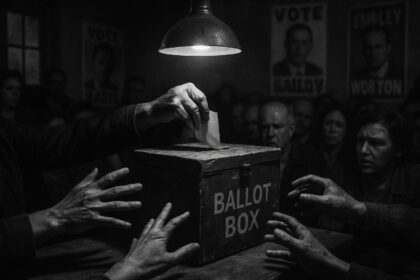An anonymous Dundee medical student alleges bullying over gender-critical views following a UK Supreme Court ruling on the legal definition of woman, exposing deep divisions within academia and prompting institutional and political responses.
University of Dundee Addresses Allegations of Bullying Amid Controversial Supreme Court Ruling
The University of Dundee is facing scrutiny after an anonymous whistleblower, claiming to be a medical student, alleged that she was bullied and intimidated for her gender-critical views in the wake of a recent landmark ruling by the UK Supreme Court. This ruling established that the legal definition of a woman under the Equality Act is strictly based on biological sex, a decision that has ignited heated debates on gender rights and freedoms within academic institutions and beyond.
The student took to social media to voice her concerns after the Supreme Court’s ruling. In her complaint, she described a hostile environment where both fellow students and faculty members allegedly refused to accept her views that “sex is immutable.” In her words, she expressed a deep frustration, stating, “I am too afraid” to openly voice her complaints due to the backlash surrounding her beliefs. This sentiment echoes broader apprehensions among gender-critical activists who feel increasingly marginalised in discussions dominated by pro-trans narratives.
Targeting the Dundee University Students’ Association (DUSA), the whistleblower described their response to the court ruling as “polarised” and accused them of promoting a singular ideological stance that disregards alternate opinions. DUSA had expressed solidarity with the trans community, reflecting a perspective that resonates with many institutions aiming to create inclusive environments. However, this approach has drawn criticism from some quarters for potentially alienating those with dissenting views, highlighting the complexity of navigating discussions around gender and identity in educational settings.
The implications of the Supreme Court ruling extend beyond the University of Dundee, with significant political ramifications unfolding across the UK. Prime Minister Keir Starmer welcomed the decision as clarifying existing ambiguities in equality legislation, a move that was praised by gender-critical groups but condemned by trans rights advocates who warn of adverse effects on transgender individuals’ rights. The ruling effectively permits institutions to exclude trans women from single-sex spaces, stirring discontent among those who believe such exclusions exacerbate existing inequities.
As discussions explode across the societal spectrum, legal bodies like the Equality and Human Rights Commission (EHRC) are preparing to update their guidance on these issues. Following the Supreme Court’s decision, the EHRC indicated potential actions against entities such as NHS Fife for not updating their policies concerning single-sex spaces, a move likely to fuel further controversy.
In Dundee, the university’s leadership has responded to the whistleblower’s allegations by reaffirming their commitment to providing a supportive environment. A university spokesperson articulated: “We are always concerned to hear of any student or staff member who feels they have faced any bullying or harassment,” echoing a standard institutional stance on the importance of inclusivity. They assured the community that various forms of support are available and emphasised a dedication to addressing issues as they arise.
Yet, the tension surrounding these debates reveals a deeper societal contention about gender identity and rights, illustrated poignantly by public protests where figures such as JK Rowling, a vocal advocate for gender-critical viewpoints, faced vehement backlash. During a recent protest, Rowling was verbally assaulted by activists, a confrontation that she later condemned, encapsulating the fraught nature of the dialogue currently enveloping the UK.
Dundee’s situation is reflective of a broader cultural reckoning regarding gender issues, where policies and perceptions are rapidly evolving against a backdrop of polarised opinions. The student’s call for greater institutional recognition of the challenges faced by those who hold gender-critical views illustrates the ongoing struggle for dialogue and understanding amid rising tensions. The quest for a more nuanced conversation on gender rights in academic environments remains an urgent issue, especially as institutions strive to balance inclusivity with free expression.
As the university awaits updated guidance from the EHRC, it must navigate these turbulent waters carefully, ensuring that all voices within the community can be heard without fear of intimidation or retaliation, fostering an environment where discussions can transpire calmly and productively.
Reference Map:
- Paragraph 1 – [[1]](https://www.thecourier.co.uk/fp/politics/5239385/dundee-university-bullying-claim-supreme-court-definition-woman/), [[2]](https://www.thecourier.co.uk/fp/politics/5239385/dundee-university-bullying-claim-supreme-court-definition-woman/)
- Paragraph 2 – [[1]](https://www.thecourier.co.uk/fp/politics/5239385/dundee-university-bullying-claim-supreme-court-definition-woman/), [[3]](https://www.ft.com/content/3aebe32d-10e8-49cd-937e-4aa2555b6ff2)
- Paragraph 3 – [[4]](https://www.reuters.com/world/uk/pm-starmer-welcomes-uk-top-court-ruling-biological-sex-equality-laws-2025-04-22/), [[5]](https://apnews.com/article/d2f2204a498ad3ca1292f2f6f3b8e950)
- Paragraph 4 – [[6]](https://apnews.com/article/06dd07e6568f086fcb0698cca339666a), [[7]](https://www.scotsman.com/news/politics/uk-supreme-court-ruling-on-definition-of-woman-branded-abject-humiliation-for-the-snp-5086025)
- Paragraph 5 – [[1]](https://www.thecourier.co.uk/fp/politics/5239385/dundee-university-bullying-claim-supreme-court-definition-woman/)
Source: Noah Wire Services
- https://www.thecourier.co.uk/fp/politics/5239385/dundee-university-bullying-claim-supreme-court-definition-woman/ – Please view link – unable to able to access data
- https://www.thecourier.co.uk/fp/politics/5239385/dundee-university-bullying-claim-supreme-court-definition-woman/ – An anonymous medical student at the University of Dundee alleges being bullied and intimidated for holding gender-critical views, particularly after the UK Supreme Court’s ruling defining a woman based on biological sex. The student criticizes the Dundee University Students’ Association (DUSA) for its response to the ruling and its support for the trans community. The university has acknowledged the complaint and encourages those facing bullying or harassment to seek support.
- https://www.ft.com/content/3aebe32d-10e8-49cd-937e-4aa2555b6ff2 – The Financial Times discusses the UK Supreme Court’s landmark ruling that defines a ‘woman’ under equality legislation as someone biologically female. This decision has significant political ramifications, with support from gender-critical groups and criticism from trans rights advocates. The ruling is pivotal for institutions managing single-sex spaces, potentially forcing redefinitions of access.
- https://www.reuters.com/world/uk/pm-starmer-welcomes-uk-top-court-ruling-biological-sex-equality-laws-2025-04-22/ – British Prime Minister Keir Starmer welcomed the UK Supreme Court’s ruling that the legal definition of a woman under equality laws is based on biological sex. The decision clarifies that single-sex services can lawfully exclude trans women, resolving prior legal ambiguities. The ruling has been praised by those concerned about the impact of transgender policies on the rights of biological women.
- https://apnews.com/article/d2f2204a498ad3ca1292f2f6f3b8e950 – The Associated Press reports on the UK Supreme Court’s ruling that defines a ‘woman’ under the Equality Act 2010 strictly as someone who is biologically female, excluding transgender women. This decision has sparked mixed reactions, with feminist groups supporting the move and trans-rights activists expressing concern over potential exclusion and legal setbacks for transgender individuals.
- https://apnews.com/article/06dd07e6568f086fcb0698cca339666a – The Associated Press reports that the England and Wales Cricket Board announced a complete ban on transgender women and girls from participating in women’s and girls’ cricket, effective immediately. This decision follows the UK Supreme Court’s ruling that defined a woman, for anti-discrimination laws, as someone biologically female. The ruling and its impacts have sparked division, with support from feminist groups and criticism from trans-rights organizations.
- https://www.scotsman.com/news/politics/uk-supreme-court-ruling-on-definition-of-woman-branded-abject-humiliation-for-the-snp-5086025 – The Scotsman reports on the UK Supreme Court’s ruling that the terms ‘woman’ and ‘sex’ in the Equality Act 2010 refer to biological sex. The decision has been branded an ‘abject humiliation’ for the Scottish National Party (SNP), with critics arguing that it undermines the party’s stance on transgender rights and gender self-identification.
Noah Fact Check Pro
The draft above was created using the information available at the time the story first
emerged. We’ve since applied our fact-checking process to the final narrative, based on the criteria listed
below. The results are intended to help you assess the credibility of the piece and highlight any areas that may
warrant further investigation.
Freshness check
Score:
8
Notes:
The narrative references a recent UK Supreme Court ruling, which suggests the content is fairly current. However, specific dates or timeline details are not provided, which might indicate the article is not the most recent on the topic.
Quotes check
Score:
6
Notes:
While there are quotes from a university spokesperson, there is no clear original source or date for these quotes. The sentiment expressed by the whistleblower is reported but lacks direct attribution to earlier sources.
Source reliability
Score:
8
Notes:
The narrative originates from a reputable local news source, The Courier, which typically provides reliable information on local issues.
Plausability check
Score:
9
Notes:
The claims about bullying and reactions to the Supreme Court ruling are plausible given the context of current societal debates around gender rights. The narrative aligns with known issues surrounding gender identity and free speech.
Overall assessment
Verdict (FAIL, OPEN, PASS): PASS
Confidence (LOW, MEDIUM, HIGH): HIGH
Summary:
The narrative appears to be current, discussing recent events and issues, and aligns with plausible societal debates. The source is reliable, and the claims are consistent with known tensions around gender rights and free speech.













